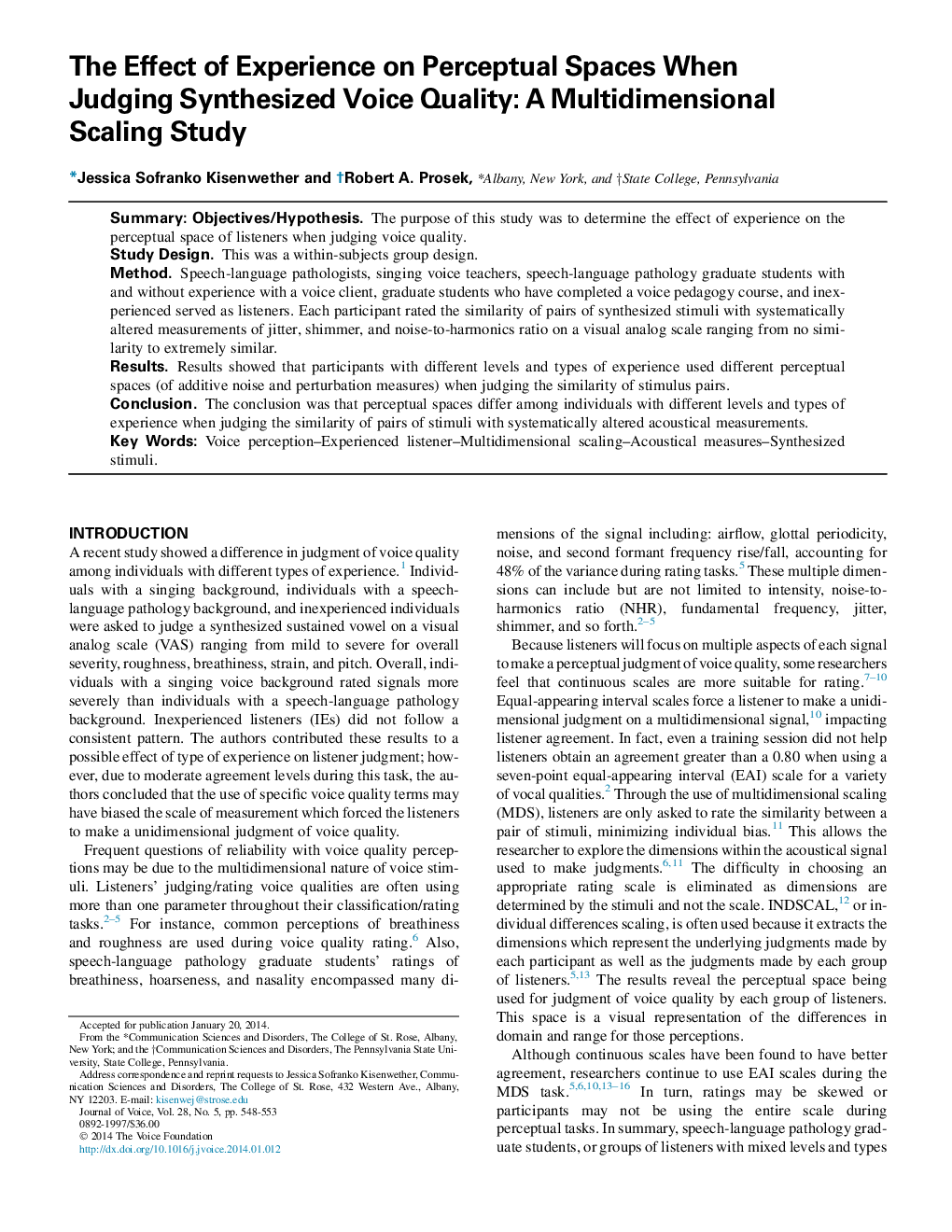| Article ID | Journal | Published Year | Pages | File Type |
|---|---|---|---|---|
| 1101679 | Journal of Voice | 2014 | 6 Pages |
SummaryObjectives/HypothesisThe purpose of this study was to determine the effect of experience on the perceptual space of listeners when judging voice quality.Study DesignThis was a within-subjects group design.MethodSpeech-language pathologists, singing voice teachers, speech-language pathology graduate students with and without experience with a voice client, graduate students who have completed a voice pedagogy course, and inexperienced served as listeners. Each participant rated the similarity of pairs of synthesized stimuli with systematically altered measurements of jitter, shimmer, and noise-to-harmonics ratio on a visual analog scale ranging from no similarity to extremely similar.ResultsResults showed that participants with different levels and types of experience used different perceptual spaces (of additive noise and perturbation measures) when judging the similarity of stimulus pairs.ConclusionThe conclusion was that perceptual spaces differ among individuals with different levels and types of experience when judging the similarity of pairs of stimuli with systematically altered acoustical measurements.
